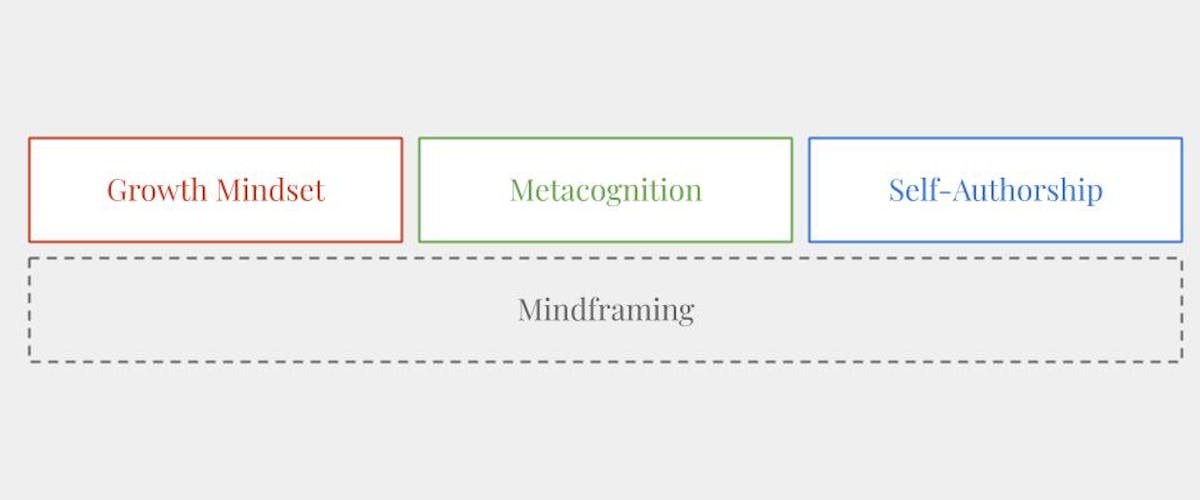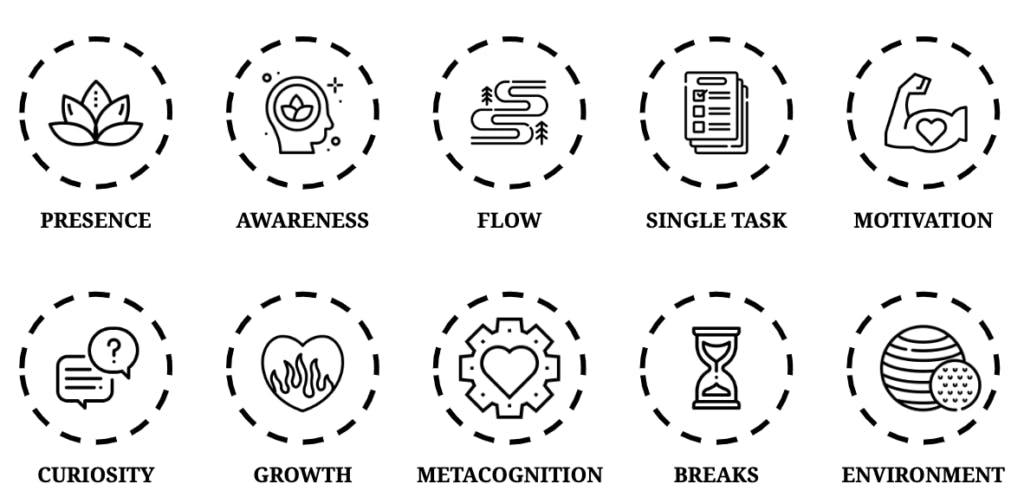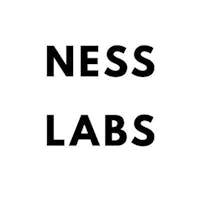How to be a better person with Anne-Laure Le Cunff of Ness Labs

Hi Anne-Laure, thanks for taking the time. How would you introduce yourself to people who don’t know you?
Thanks for having me! I run Ness Labs, a studio where I create science-based products that help makers be more creative and more productive. We also advise and support startups and bigger companies with their overall product and marketing strategy, consumer psychology, and more. Besides running the company, I study neuroscience part-time at King’s College in London.
In a previous life, I worked at Google in San Francisco, where I was looking after several digital health products, including Google Fit. I’m passionate about the way our brain works, and how we can elevate our understanding of the mind to achieve more. Most of the work I do at the moment is at the intersection of neuroscience and entrepreneurship.
On a more personal level, I’m half-French, half-Algerian, born and raised in Paris in a multicultural family. My sister currently lives in Seoul, my older brother in Belgium, and my younger brother in Hungary. In my free time, I mostly enjoy simple stuff like reading, writing, traveling — forty countries and counting! — and spending time with my friends and family.
Can you tell us about your first encounter with entrepreneurship?
The first time I sold something I made was when I was a kid. I created a “magazine” and asked other students to contribute drawings, short stories, jokes, whatever they wanted. There was some pretty silly stuff in there and we were not really supposed to make money on school’s ground so it actually got me into trouble. In high school, I was selling HTML and PSD templates online. And in uni, I started selling t-shirts with QR codes redirecting to whatever URL the customer wanted. I didn’t sell many of these. Turns out people don’t want to look like a scannable billboard when walking around.
You mention wanting to help people achieve their potential without sacrificing their mental health, how do you go on to achieve that?
There’s lots of content, advice, and apps to help people be more productive. But productivity for the sake of productivity rarely lasts. People lose their motivation. Through my website and tools, I’m advocating for mindful productivity. For example, Teeny Breaks is a free Chrome extension reminding users to take mindful breaks every time they open a new tab. Each tip links to the corresponding research paper so people can explore the science behind it. Another way I help people implement mindful productivity into their workflow is through my newsletter, Maker Mind. Each week, I share neuroscience-based articles with strategies to achieve more while keeping your sanity.
I created a mindful productivity method called mindframing, which is a simple way to achieve long-term goals. My next step is to turn my research in this area into an actionable course people can take in order to implement mindframing. It will be based on lots of the writing I’ve done on my blog and newsletter, as well as what I study for my master’s in neuroscience. I have already received lots of positive feedback from fellow makers who are using mindframing for everything from learning how to code to writing a book.

You may have one of the fastest-growing blogs with 30K+ monthly visitors and 10'000 email subscribers in a few months, how could someone emulate your success?
I know this is an overused word, but consistency is key. I started writing five times a week on the blog, every single weekday. Every morning, I block an hour and a half to sit down and write. Sometimes the posts are longer, sometimes shorter, but what matters is that I never miss a day. What’s great is that the more I write, the better I become. When I look back at articles from two months ago, I can already see a significant difference.
Then I share my daily article where my audience hangs out. In my case, my audience is entrepreneurs and knowledge workers, so I mostly post on Twitter and Hacker News. I also occasionally post in some groups on Telegram, Facebook, WhatsApp, and Slack depending on the relevance of the article.
I always make sure to contribute value to the places where I post. First, because it’s the right thing to do. Second, because people are more likely to engage with content from someone they know. Third, because you don’t want to come off as spammy.
I always ask for feedback on my articles. Some readers email me, others send me a message on Twitter. Sometimes it’s just to let me know they found a typo, other times to suggest a potential topic for a future article, and sometimes to give me detailed feedback or suggestions. In each of my newsletters, I remind readers that they’re more than welcome to hit reply, even if they just want to say hello. It’s important to create a sense of community around your work.
Finally, I’ve been putting a lot more effort into SEO. I never pick a topic based on this, but I always optimize my posts before hitting publish. I used the Yoast plugin for WordPress, which helps me find the right URL, make sure my headlines are clear, and that I don’t forget to add relevant descriptions to all images. I don’t get a lot of traffic yet from organic searches but it’s growing pretty fast and I find it exciting to build steady traffic. The spikes I get from viral posts on social media are great to boost my endorphin levels but it’s not the most sustainable way to grow a blog.
I made a lot of small tweaks on the website to increase the conversion rate. There’s some bonus content people can get by subscribing. I even changed the font by popular demand and let people vote for the one I should pick. I’m hoping to build a home for people who care about mindful productivity, so it’s important to listen to the readers. I think consistency and seeking feedback are the two most crucial aspects of growing a blog.

Beside blogging every day, you also run Maker Mag and study neuroscience at King’s College, how do you manage your time?
Everything goes into my calendar!
If it’s not there, it doesn’t happen. That being said, it’s about knowing what’s urgent versus what’s important. At the moment, the important stuff is my studies and growing Ness Labs. So I block time for all of these. Then I also block time for going to the gym and hanging out with friends and family. Whatever time is left I can use for meetings, Maker Mag, and other projects and activities. The important thing about meetings is that I rarely take them. I often ask if the person can send an email instead, or if we can do a quick call. I get a lot of businesses reaching out to “pick my brain” — these I redirect to my consulting services
The meetings I have are often because I’m interested in meeting the person face-to-face because it’s been a while we’ve been interacting together online, or we have lots of interests in common and I think it would be a good chat. For anything more practical or if I don’t know the person well, I avoid having a meeting or if they need business help I ask to be paid for my time.
All in all, I feel like I have a pretty balanced way of managing my time. I do work a lot, but I enjoy it. And I make sure I get enough sleep, I go to the gym, and try to take care of my body and my mind in general. It’s possible — of course not necessary and I realise it’s a privilege — to work a lot and feel rested.
A lot of people dream of quitting their job to start something, you left Google, can you walk us through on how that happened?
Google is a great place to work. I loved my colleagues and we had exciting projects to work on, but I was struggling with the bounded personal growth big corporations offer. Sure, you learn and you grow, but at a pace that is controlled and limited by the numerous factors a company has to compute when managing a workforce, including business priorities, promotions, team size, resources, and more.
I felt like I was too early in my career to follow a predetermined path. Knowing exactly where I would be in a few years paradoxically felt scary. So I gave my notice.
I left San Francisco and came back to London to start my own thing. My first product failed. We broke up with my technical co-founder. Since then, I’ve learned how to code so I can decide whether or not to work with someone else based on something more than the complete inability to get a product off the ground with their help.
A few important factors in my decision to leave: first, I had managed to save some money during my first few years at Google. Second, I had acquired skills that I knew I could monetize should I need more time before generating enough income from my products. Third, I’m very privileged in the sense that I have a great support network. I wouldn’t struggle to find a couch to sleep on should things go wrong.
I know lots of people dream of leaving their job to start their own thing. It’s a wonderful thing to do. I just wish there was more support for entrepreneurs who don’t have the money nor the support network. The UK is not too bad in that regard. There are lots of startup loans and grants and education is more affordable than it is in the US. In France, things are also becoming more interesting for startup founders, with more support from the government
If you could know the absolute and total truth to one question, what question would you ask?
Wow, that’s a hard question! If taken at an existential level, the one question would be “what is reality?” As in, what’s part of our imagination, what actually exists? I always think about random stuff such as what does a colour look like when not seen through the human eye, are we more conscious or less conscious of reality when taking psychedelics, is there a theory of everything?
At a personal level, “What is my ikigai?” would be the one question. I don’t know if I’ll find it, and I think it’s possible to live without it, but finding true meaning in one’s life sounds like a pretty interesting answer to get.

Anne-Laure Le Cunff
Stay in touch with Anne-Laure on Twitter and make sure to subscribe to her newsletter!
